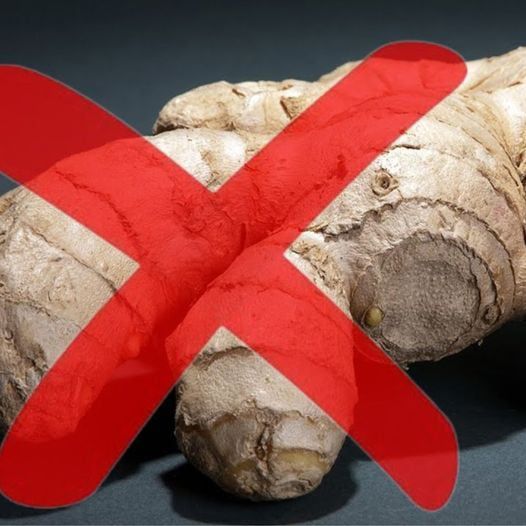Ginger, a popular spice known for its distinctive flavor and impressive health benefits, is a common ingredient in many kitchens around the world. It is often praised for its anti-inflammatory properties, digestive aid, and ability to boost the immune system. However, while ginger is generally considered safe for most people, there are certain health conditions where it might not be the best choice. Like any other natural remedy or supplement, it’s important to know when and how to use ginger. This guide provides insight into the health conditions where you should think twice before using ginger, ensuring that you’re using it in the safest way possible.
1. Blood Thinning Issues
One of the most well-known properties of ginger is its ability to act as a natural blood thinner. This property can be beneficial for some individuals, particularly those who are at risk of developing blood clots. However, for people on blood-thinning medications like warfarin, aspirin, or other anticoagulants, this blood-thinning effect could increase the risk of bleeding or bruising.
If you are on prescribed blood thinners, it is essential to consult your healthcare provider before incorporating ginger into your diet. Combining ginger with these medications could make your blood too thin, potentially leading to complications such as excessive bleeding or hemorrhage. This is particularly concerning if you have a planned surgery or are prone to easy bruising or bleeding.
2. Gallstones
Ginger is known to stimulate the production of bile, which helps in the digestion and breakdown of fats. This is beneficial for healthy digestion and can aid in alleviating nausea or indigestion. However, for individuals who suffer from gallstones, this increased bile production may trigger discomfort, pain, or even more severe complications.
Gallstones are hardened deposits that form in the gallbladder and can block bile ducts, leading to severe pain, infection, or inflammation. When you consume ginger, it can stimulate the gallbladder to release more bile, which may lead to increased pain or potential bile duct obstruction. If you have gallstones, it is advisable to limit your ginger intake and speak with your doctor about the best dietary choices for your condition.
3. Low Blood Pressure and Heart Conditions
Ginger has long been known for its ability to lower blood pressure. For many individuals with high blood pressure (hypertension), ginger can be a useful addition to their diet, as it may help reduce systolic and diastolic blood pressure. However, for those who already have low blood pressure (hypotension) or certain heart conditions, ginger might cause their blood pressure to drop too low, which could result in dizziness, fainting, or other related symptoms.
Additionally, for people with heart conditions such as arrhythmias or those taking medications to manage heart function, ginger may interfere with certain medications, such as beta-blockers or calcium channel blockers. If you are dealing with heart issues or low blood pressure, it is crucial to talk to your doctor before consuming large amounts of ginger.
see more on the next page
